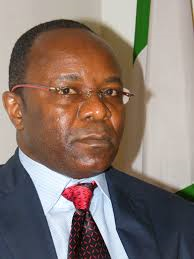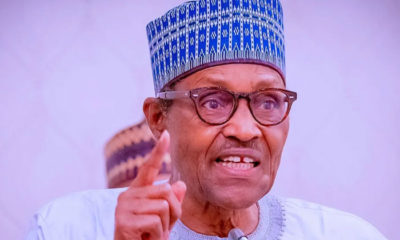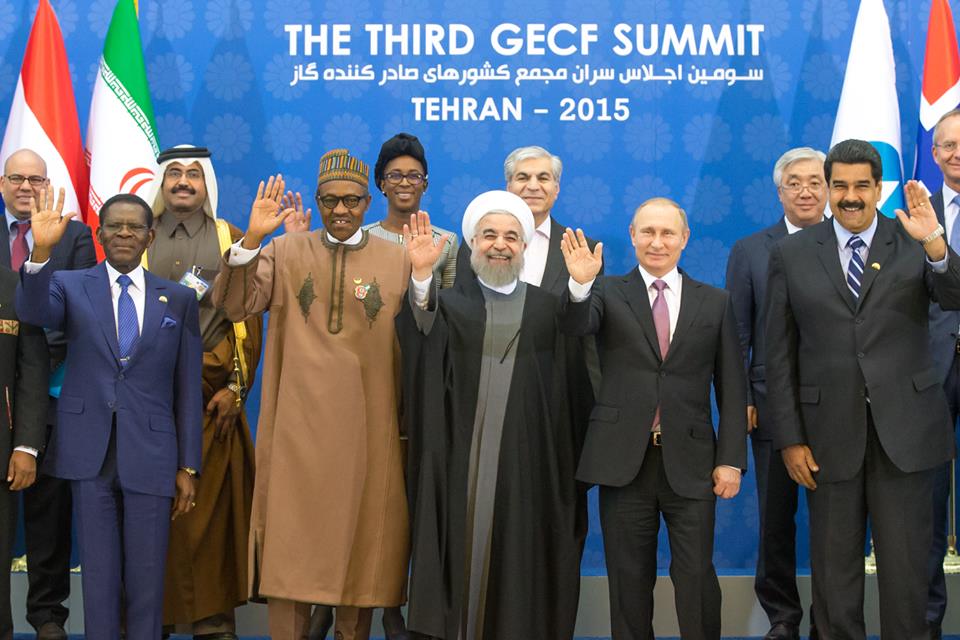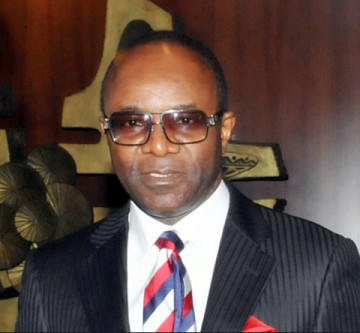Finance
Reforms:NNPC remits $607.8 million to Federation account, publishes financial and operational report

By Yemie ADEOYE
ABUJA-IN line with its earlier pledge to open up the books of the Nigerian National Petroleum Corporation, NNPC for public scrutiny and ensure a strategic and systemic reform of the sector, the Management of the national oil Corporation under the leadership of Dr. Ibe Kachikwu over the weekend announced a remittance to the federation account of $607.8 million, just as it also announces the commencement the monthly publication of its provisional financial and operational reports.
The publication which is available on the Corporation’s official website provides an overview of NNPC’s operations across the oil and gas value chain (Upstream, Midstream & Downstream) as well as NNPC’s agency function on behalf of Government of the Federation from the period January to August 2015.
Specifically, the report provides detailed and unprecedented statistical insight into crucial aspects of the Corporation’s activities ranging from National Crude Oil & Natural Gas Production, Lifting and Utilization; Refineries Plants Operations; and Petroleum Product Supply & Distribution to NNPC Budget Performance Report and Federation Crude Oil & Gas Revenue.
Illustrated with tables, graphs and charts, the report vividly throws light into aspects of NNPC’s operations that were once described as ‘opaque’. Issues like the status of the once misunderstand JP Morgan Foreign account, management and custody of revenue from crude oil sales, actual production capacity of the refineries, dollar accruals to NNPC/FGN from export crude oil and gas, as well as receipts & payments are laid bare.
The report indicates that a total of $607.8 million has been paid so far to the Federation Accounts Allocation Committee, FAAC in the year 2015 from sales of export Oil and Gas as dollar proceeds.
A further breakdown indicates that the total export crude Oil & Gas receipt for the period of January – August 2015 is $3.420 billion, of the total receipts, the sum of $0.61billion was remitted to Federation Account as dollar proceeds while the balance of $2.815billion was used to fund the JV Cash Call for the period.
The report notes that the receipts witnessed a sharp decline of more than 67% from September, 2014, when the receipt was at its peak, to July, 2015 with dire consequences to the Federation.
The NNPC informed that the continued decline in oil price led to insufficient cash available to meet monthly JV Cash Calls obligations of about $615.8m as appropriated by the National Assembly. To mitigate this effect, NNPC was compelled to sweep all the export receipt to JV Cash Call funding implying a zero dollar proceed remittance to the Federation Account since the month of April 2015.
The sum of N723.82billion for Domestic Crude Oil and Gas Sales proceeds has been paid to the Federation Account from January to August 2015 as Naira proceeds.
Business
Nigeria pays US$4.9 billion on petrol subsidy in 2024- NNPCL
It was however noted by Biztellers.com.ng, that although subsidy is back in effect, the main reason for that is the increasingly weak state of the Naira and the country’s extreme dependence on products importation. Also unlike the previous subsidy era, where several oil marketers were getting free subsidy refunds for unverified product importation, this subsidy era is witnessing only one importer, the NNPCL, which in effect is the sole receiver of government subsidies.
Yemie ADEOYE
INSPITE of the official position of the Nigerian government that the controversial petrol subsidy is gone for good as announced by the President on assumption of office, the state owned Nigerian National Petroleum Corporation Limited, NNPCL has disclosed that petrol subsidy is still fully operational in Nigeria, although, under a different identity.
Umar Ajiya, Chief Financial Officer at the NNPCL, disclosed that it cost the company a staggering N7.8 trillion (US$4.9) to cover this price gap in the first seven months of 2024.
Rather than simply referring to these claims as subsidies, he stated that the company is merely managing the price difference in petrol imports on behalf of the federation, stressing that this should not be misconstrued as a return to subsidy payments.
![]() This revelation has reignited discussions on whether the NNPC is indirectly offering subsidies, a concept typically defined as selling a product below its cost price.
This revelation has reignited discussions on whether the NNPC is indirectly offering subsidies, a concept typically defined as selling a product below its cost price.
Documents reviewed by Biztellers.com.ng showed that the term “subsidy” was used extensively in official correspondence between the NNPCL and the presidency, particularly in reference to the “shortfall.”
Recall that President Bola Tinubu reportedly approved NNPC’s request to utilize the 2023 final dividends due to the federation to offset these costs.
However, during a media briefing on Monday about the company’s 2023 audited financial statements, Ajiya refuted claims that the NNPC is involved in any subsidy scheme.
Ajiya further disclosed that the Nigerian government owes the NNPC N7.8 trillion ($4.9 billion) in subsidy-related debts for the period from January to July 2024.
In furtherance of his clarification to the News Agency of Nigeria (NAN), Ajiya insisted that no subsidy payments have been made to any marketer in the last nine years, citing the NNPC’s role as the sole importer of petrol under supply contracts.
He said, “In the last eight to nine years, NNPC Ltd. has not paid anyone a dime as a subsidy; no kobo has been disbursed by NNPC Ltd. in the name of subsidy. No marketer has received any payment from us for subsidy.”
“What has been happening is that we have been importing PMS, which has been landing at a specific cost price, and the government tells us to sell it at half price. So the difference between the landing price and that half price is a shortfall.
“And the deal is between the Federation and NNPC Ltd., to reconcile, sometimes they give us money, so there is no money exchanging hands with any marketer in the name of subsidy.”
Ajiya remained silent on how much of the $4.9 billion could have been remitted to the federation account if the NNPC had not been covering the “shortfall.”
It was however noted by Biztellers.com.ng, that although subsidy is back in effect, the main reason for that is the increasingly weak state of the Naira and the country’s extreme dependence on products importation. Also unlike the previous subsidy era, where several oil marketers were getting free subsidy refunds for unverified product importation, this subsidy era is witnessing only one importer, the NNPCL, which in effect is the sole receiver of government subsidies.
Banking
CBN Denies Currency Devaluation

The Central Bank of Nigeria (CBN) has refuted claims of devaluing the.
Earlier reports suggested that the CBN had devalued the Naira, lowering its exchange rate from N631 to the dollar, compared to the previous day’s rate of N461.60 at the Importers and Exporters (I&E) window.
However, the Central Bank of Nigeria (CBN) released a statement on Thursday through its Acting Head of Corporate Communications, Dr. Isa Abdulmumin, categorizing the report as false information.
In the statement titled ‘CBN Has Not Devalued The Naira’, he said the attention of the apex bank was drawn to the news report by an Abuja based newspaper edition of June 1, 2023, titled “CB Devalues Naira To 630/51”.
However, the CBN stated categorically that the news report was replete with outright FALSEHOODS and destabilizing innuendos, ‘reflecting potentially willful ignorance of the said medium as to the workings of the Nigerian Foreign Exchange Market.’
“For the avoidance of doubt, the exchange rate at the Investors’ & Exporters (I&E) window traded this morning (June 1, 2023) at N465/USS1 and has been stable around this rate for a while.
“The public is hereby advised to ignore the news report by Daily Trust in its entirety, as it is speculative and calculated at causing panic in the market,” the CBN spokesman added.
He, therefore, advised media practitioners to verify their facts from the Central Bank of Nigeria before publishing in order not to misinform the public.
Banking
BREAKING: CBN Increases Interest Rate By 0.5%

The interest rate in Nigeria has been raised to 18.5 percent, up by 0.5 percent, from 18 percent where it was pegged in March 2023.
The Central Banks of Nigeria’s (CBN) Monetary Policy Committee (MPC) resolved to this effect at its third meeting of 2023 in Abuja, on Wednesday.
Governor, CBN, Godwin Emefiele, made the disclosure in the communiqué of the MPC’s meeting, thereafter.
While engaging the media at the end of the two-day meeting, Emefiele, said the committee voted to keep the asymmetric corridor at +100 and -700 basis points around the MPR.
In the view of the MPC, rising inflation rate is traceable to the high energy cost and challenges around the supply chain, among others, which lie outside the corridors of the CBN.
Emefiele said, “The current trend in price development would continue to be monitored by the bank with greater collaboration with fiscal authority to address the drivers of inflation.”
Biztellers reports that the CBN had effected six consecutive interest rate increases, which has seen the rate move from 11.5 percent in March 2022 to 18.5 percent in May 2023.






















